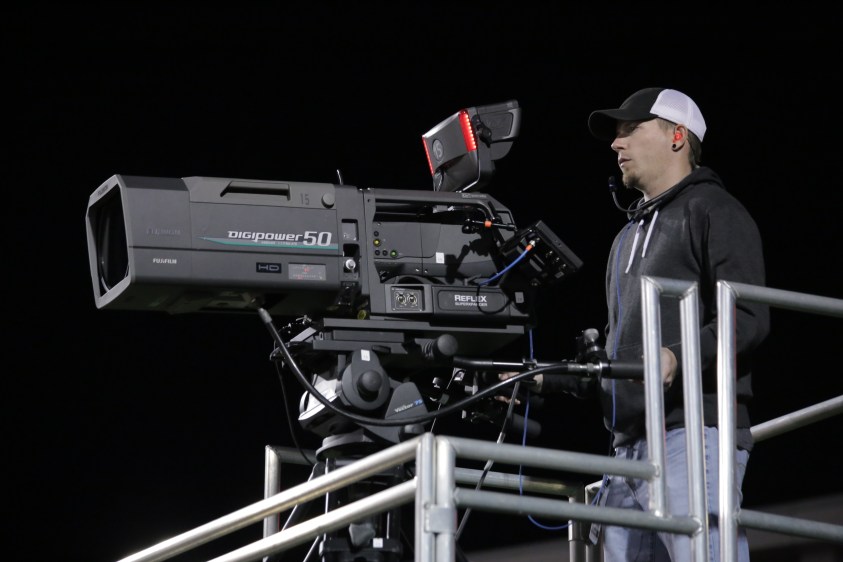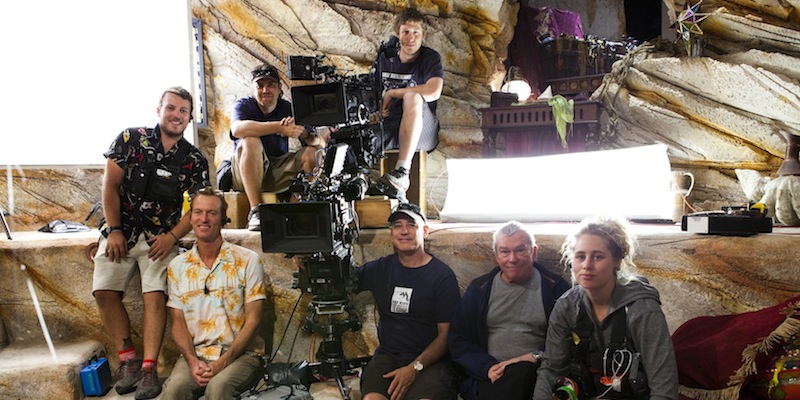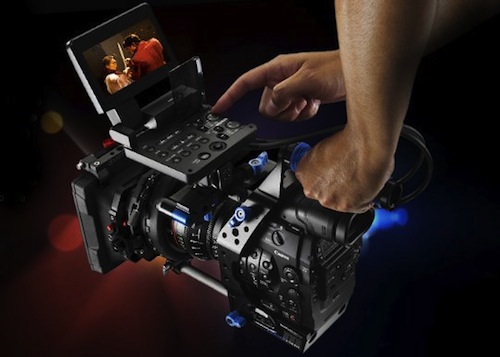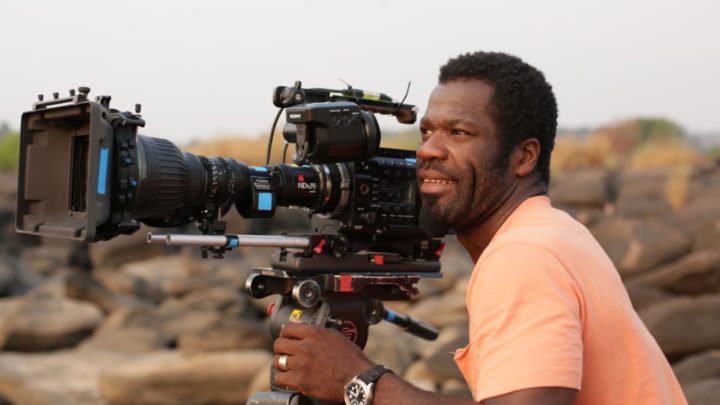How To Be a Better Camera Operator – Part 2: TECHNIQUE
Clearly state when the camera is running
When the camera is running everyone on the shoot should know it.
Edit in Camera
Make sure your footage will cut together.
Don’t overshoot
Overshooting means filming far more footage than is actually required. This is extremely bad practice, but for some reason it seems to be quite common. Frankly it drives me (and my fellow professionals) absolutely crazy!
Turn in flawless footage – ALWAYS!
Your job isn’t to shoot footage that is just acceptable; your job is to shoot footage that is exceptional!
Develop Speed and Efficiency
We are all familiar with the term ‘Time is Money’ and it is never more so prevalent than in the film and TV industry. A production going over schedule has a serious knock on effect on the budget. There are literally hundreds of reasons why a production can go over schedule, bad weather, various technical problems, actors/TV presenters’ performances and directors wanting to do retakes…the list goes on and on!

Tips for Surviving in the Camera Department
Big Budget Cameras to Know:
The Alexa is unsurpassed in it’s abilities. Although it is one of the pricier cameras on the market, you get what you pay for. Using the Alexa allows productions the ability to use less lighting, and gives little to correct in post. For informational videos about the Alexa, follow the link below.
Small Budget Cameras to Know:
These three cameras cannot provide the quality that the Alexa and Amira do, but they are major players in smaller budget productions. With the right lighting, and the right lens, you can create some amazing shots with these cameras. Beneath each picture, you will find a link to the brochures and manuals for each camera. Memorizing every manual is pretty impossible, but you should know where to get them so that you can refresh your memory before a shoot.
Be Alert/Present
Stay alert to the needs of the Operator and the DP. Blend in with the surroundings, almost make yourself invisible, and support the camera department with anything they need. You should always be present and working on the job you’re on now, not thinking about your next job.
Anticipate
Anticipating the DP and Operators needs will be next to impossible if it’s the first shoot day and you’ve never worked with this crew before. So use that first day to really observe your surroundings and the behavior of the crew. Learn on your feet so that you can begin to anticipate the needs of the department.
But Don’t Over Anticipate – Be Respectful
There’s a fine line between anticipating and being overbearing. If you overhear a conversation between the Director and the DP, and you hear them specifically say they want to use another lens, then it is ok to preemptively change the lens before the DP walks over to you. If the DP is taking a moment to think about the shot, do not interrupt their thoughts with your own suggestions of what lens you think would look good. Find the line, don’t overstep and certainly don’t guess. If the DP asks for your opinion, give it. If they don’t, don’t. Be reactive, but do not step on toes. There’s a balance that you need to find.

Tips for Camera operators
The Rule of Thirds
A basic rule of composition is the rule of thirds. This guideline gives you ideas on where to place your subject within the frame. Though your tendency may be to position your subject dead center on the screen, the rule of thirds will give you a more compelling picture.
Look Room, Lead Room and Headroom
Look room is the space that you leave in front of someone’s face on the screen. This space gives the person room to breathe, as well as gives the impression that the person is looking at or talking to someone just off screen. If you don’t leave enough look room, your subject will appear to be boxed-in and confined.
Remember
Good composition is a means to an end. When it’s done well, the audience should not notice it. Instead it should help create a mood, or at the very least, a sense of normalcy and stability. The next time you watch a movie, pay attention to how the cinematographer frames the shots. You’ll notice that they use the rule of thirds as their foundation, and build from there.
Searching for shots:
Always be searching for new shots. Your Goal as a camera operator is to get your camera “Live” as many times as possible. The best way to do this is to continually “Feed” the director Shots.
Other tips:
Keep your camera in focus: out of focus shots are hard to look and can cause a disconnect with the audience. To make sure you are in focus zoom all the way in on a subject. Focus and no matter how far out you are that subject will always be in focus.

New Camera Operator? 5 Tips for Success
Understand your event.
I know this sounds like an elementary idea, but it’s incredible how much understanding the event you’re covering helps you with your job. You have to ask yourself: do I know what the viewer – and your on-air talent – is looking for? Covering football or basketball, do I know the basic rules and flow of the game? These things are vital to understand to make your job as a camera operator much easier. If you find yourself saying you don’t have a firm understanding of the event, then do your homework and watch the event.
Know your role.
This is a two-part tip that will make your life much easier if you keep it in mind. As a camera operator, it’s important that you understand the responsibilities for your particular camera position and that you understand your place in the chain of command. I’m not trying to steal a line from Dwayne “The Rock” Johnson, I’m only trying to help you avoid a potentially detrimental mistake.
Be aware.
Again, this is another multi-part tip, but this one will go a long way in your success as a camera operator. The four biggest things I think a camera operator needs to be aware of are: your tally light, the program audio, the director and other people. Your camera’s tally light is the single most important thing you can pay attention to as a camera operator.
Be prepared.
This seems like an overarching tip that really encompasses everything above it, but here I’m talking about being physically prepared. Every event I work, I take a backpack with me that has everything I think I could possibly need for an event. My backpack contains rain gear, sunscreen, paper tape, gaff tape, a multi-tool, snacks and all kinds of other small items. Being prepared for anything will make your life much easier.
Make goals.
This is something I do every single time I work an event. I found by making goals for myself going into and during a game makes the job more fun while helping me progress. The goal can be something as simple as, every shot will be in focus, or something bigger like, during game action the ball will not leave my shot. One goal I always try to set — and I found has helped me hone my skills — is mimicking a shot I saw on a major network broadcast.

Top [5] five qualities to look for when hiring a cameraman or crew
Easy to work with/Flexible
Finding someone who is flexible and easy to work with is always nice to have, but it is especially true when selecting a camera operator. You want someone who can: put those being filmed at ease; be patient when working on set during unavoidable delays; and be understanding about reshooting if you’re not getting what you had envisioned. You may be able to step in and do an “okay job” at other tasks, but shooting with a $50,000 camera and lens takes technical skills learned through school and years of practice.
Honed technical skills/Tech savvy
Operating a camera, maintaining composition and adjusting camera angles is no easy feat. Learning, understanding and honing the technical skills required to become an operator takes many years – and then several more to hone a specialty. For instance, to be good at news requires a cameraman who is quick thinking and fast on their feet. Others may be good at sports production and following the ball, or an expert in EFP (Electronic Field Production) which requires precise lighting and composition. Still others specialize in multi-cam for meetings and the like, and then some can do it all. Camera operators also need to stay up-to-date on shooting techniques, lighting, new equipment, and a plethora of formats, frame rates and resolutions.
Physical stamina and strength
While keeping abreast of the latest news through industry associations, forums and journals is important for honing technical skills, the camera operator must also possess physical stamina, strength and manual dexterity. Shooting, although lots of fun, can also be very demanding – with long hours, challenging conditions, and the need to be on your feet all day.
Creativity: they have a “good eye”
Creativity is something that cannot be taught. A good camera operator will be able to spot a good opportunity and have an artistic eye for framing shots. Having the ability to look through the lens and picture how all of the elements come together – visual composition, perspective, lighting and movement – is crucial so that the images captured will reinforce your message and tell your story in the way you want it to and one that is consistent with your brand image.
Attention to detail
Producing professional video is an orchestrated event that requires all parties to work together. A good camera crew will carry out instructions accurately and with precision. This level of coordination between you, camera and audio people, lighting and the rest of the crew will multiply your productivity and benefit your communication objective. Getting “what you need” or “more than you need” in the field will streamline your editing process and provide additional content for the future.